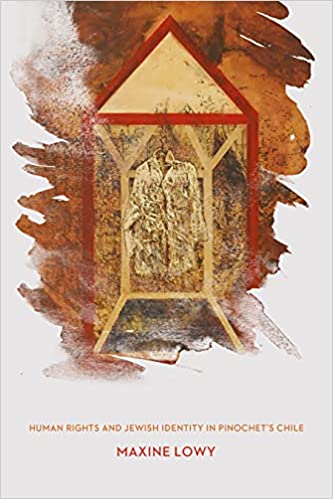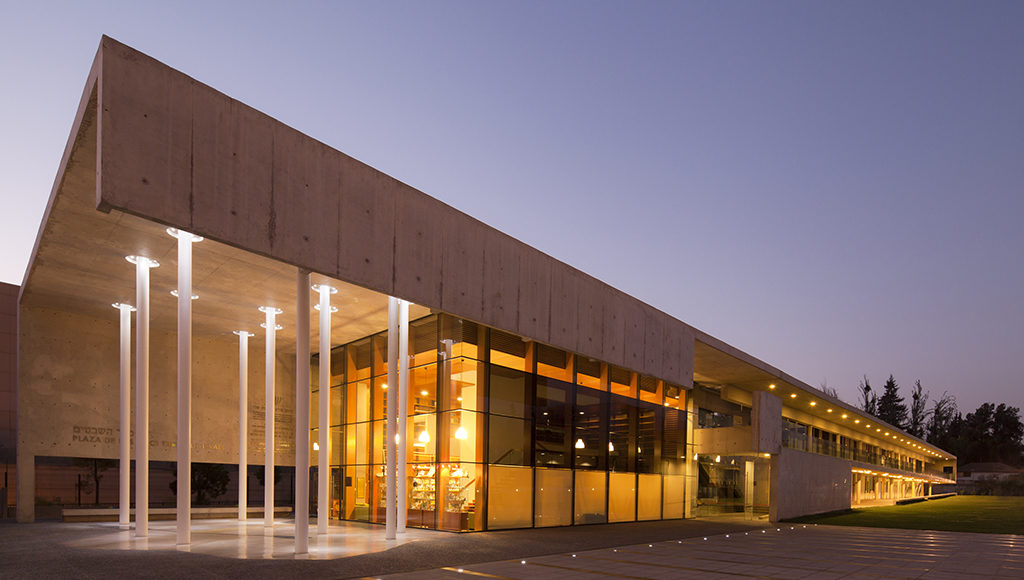Latent Memory – Human Rights and Jewish Identity in Pinochet’s Chile, by Maxine Lowy
The title of this remarkable book can be construed in two ways: The latent collective consciousness in many Jews, of the anti-Semitism that can spring to life to strike when least expected; and the distant collective memory of past persecutions.

In a thorough and painstaking investigation, Maxine Lowy has researched and talked with dozens of members of the Jewish community in Chile to establish the fate of the left-wing Jewish militants who were imprisoned, tortured, and murdered under the 1973-1990 military dictatorship for their support of the Popular Unity government of President Salvador Allende.
An interesting aspect is that, though Chile received a substantial number of German immigrants in the 19th and early 20th centuries, among whom there developed a strong current of Nazi sympathisers, anti-Semitism was not a feature of Chilean society. During the Second World War, the Chilean army’s Prussian tradition endowed it with pro-German sentiments; but it was not overtly anti-Jewish, although within the Foreign Ministry there were Nazi sympathizers who systematically denied visas to Nazi victims trying to flee Europe.
Under the Argentine military dictatorship (1975-1983), Jews accounted for 12 per cent of the victims of their ‘Western and Christian regime’, although they represented only one per cent of the population 1)Figures from ‘Tango War’, by Mary Jo McConahay. St Martin’s Press, New York.. In Chile, by comparison, as Lowy notes, ‘… the [official] list of 3,195 forcibly disappeared and summarily executed people includes at least nineteen people of Jewish origin’. The report on 28,459 torture victims concluded that at least 145 and possibly 200 individuals were of Jewish origin.
Opinion in the Jewish community
A main focus of Lowy’s work, however, is the reaction of the Chilean Jewish community and its relationship with the dictatorship. She writes: ‘When the military abruptly upended democracy on 11 September 1973, shutting down Congress, suspending all civil and human rights and introducing a radical neoliberal economic policy, most Jewish community leaders explicitly applauded the authoritarian regime. Despite the implementation of a systematic policy of state terrorism and repression, they preferred to ignore the persecution and suffering of fellow Chileans. Progressive Jews who suffered physical and psychological abuse in unjust, brutal detentions now became the ‘other’, ostracized by Jewish communities.’
Most of the Jewish community not only failed to intercede for those of its members who were being persecuted but, in line with their position in society, they closed their eyes and ears to the repression of the left as a whole. Jewish militants were submitted indiscriminately to the same treatment as other left-wing militants.
Taking a stand … or not
A second major focus of the book seeks to apply to the Chilean context some of the concepts more commonly associated with the Shoah and post Shoah: the role of bystanders and protectors; negationism; and the path to healing through truth, justice, and memory. While some Jewish institutions argue that Shoah brutalities overshadow all other acts of genocide and human rights violations, Lowy argues that, ‘while nothing approaches the scale and extreme dimensions of the Nazi systematic extermination, this does not mean that what happened in Bosnia, Cambodia, Rwanda, Chile is less serious, nor that Jews and non-Jews should not take a stand to condemn barbarity wherever it is committed.’ Ironically, she adds, in Chilean schools all students learn the story of Anne Frank, but few know anything about the dictatorship’s persecution of its opponents, and prominent figures still justify what was a state policy of terror.
Latent Memory is a substantial piece of scholarship, but above all a plea that latent memory should be transformed to an active, militant remembering of the past, and the determination not to see the suffering and injustice repeated.
Latent Memory – Human Rights and Jewish Identity in Pinochet’s Chile, by Maxine Lowy. Published by University of Wisconsin Press. 297 pp. Available on Amazon.
Maxine Lowy is an editor, translator, and freelance journalist based in Santiago, Chile. Her work focuses on human rights and contemporary social issues. She is the author of Sembradoras de fe y esperanza: El legado de mujeres de comunidades cristianas populares. She created and coordinated the human rights website www.memoriayjusticia.cl.
LAB also recommends: K, by Bernardo Kucinski a searing memoir-novel which portrays the anguish of a Yiddish scholar in Brazil as he searches for his disappeared daughter, abducted, disappeared and murdered by the military dictatorship. K receives scant understanding or support from his own Jewish community, but obtains more help from human rights campaigners sheltered by the Catholic church. Copies of K can be obtained here.
Main image: The synagogue and Jewish community centre, Santiago
References
| ↑1 | Figures from ‘Tango War’, by Mary Jo McConahay. St Martin’s Press, New York. |
|---|


